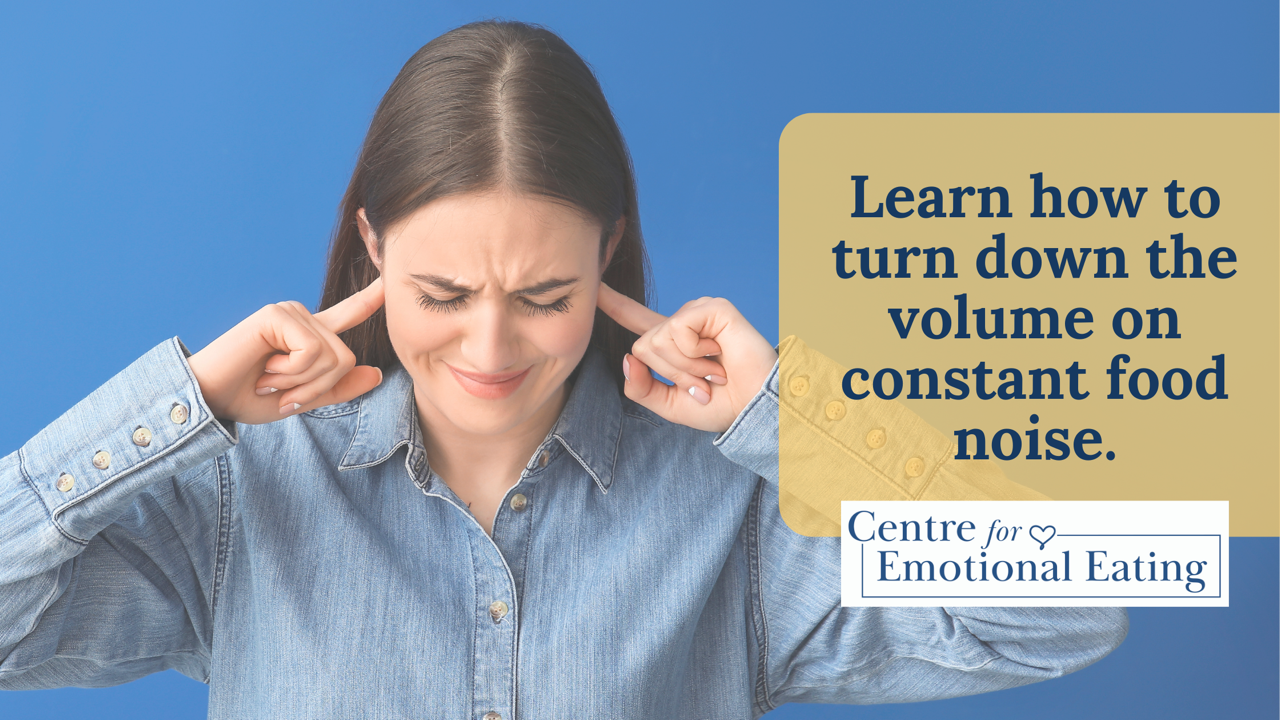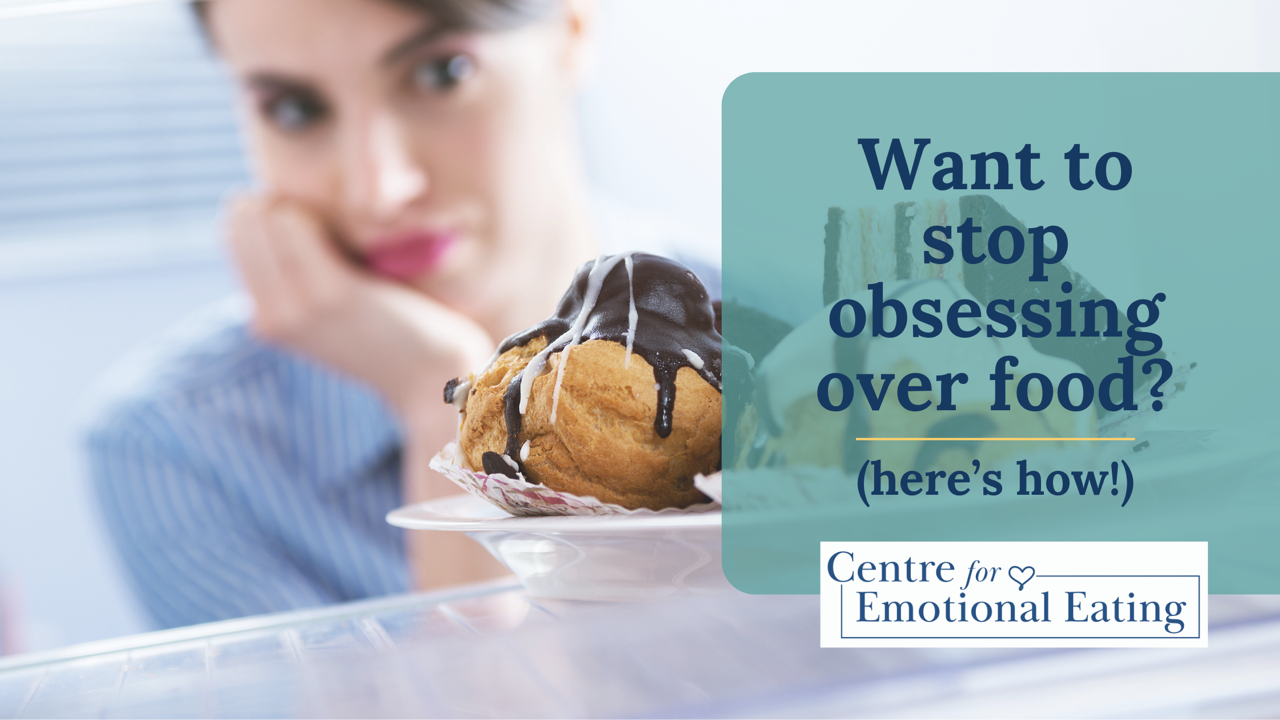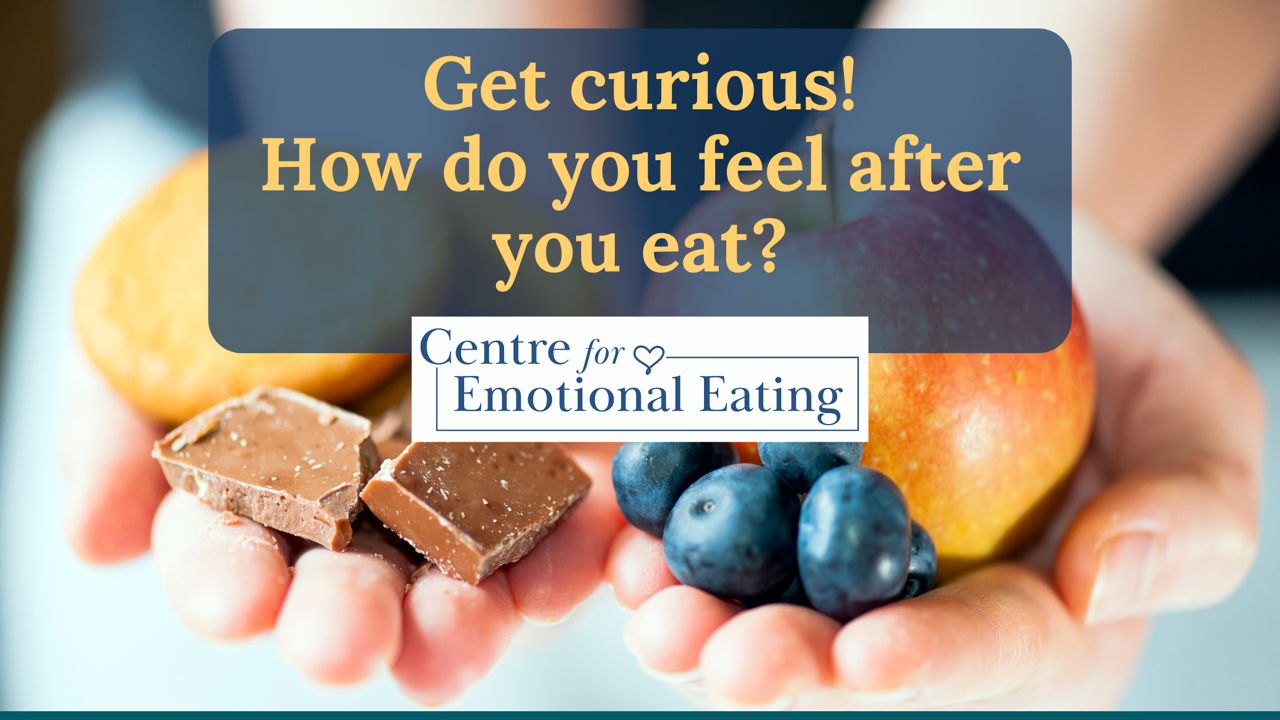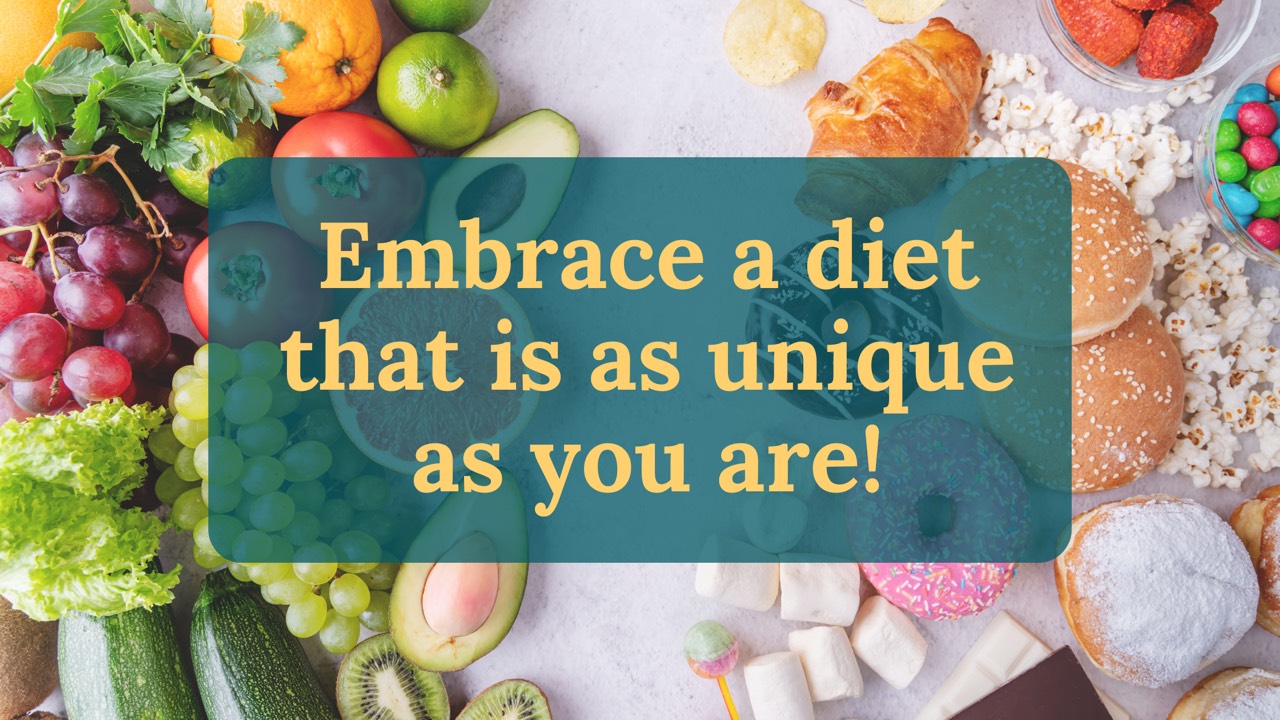BLOG
Find support not just for emotional eating, but all aspects of your well-being.
Food Noise Explained: Why It Happens and How to Find Peace with It

It is common to think about food: what you have to pick up at the grocery store, your weekend dinner out with friends, or even if you want a pastry to go with your coffee.
But when your mind is running a constant dialogue focused on your next meal or snack, how much and when you’ll eat, chances are you’re experiencing food noise. You might have come across this term online, so today we’re breaking down why you can’t stop thinking about food and what to do about it.
What is food noise?
We can define it as a preoccupation with food before, during, and after you eat—so all the time! This can come in the form of questions or criticisms. Do any of these sound familiar?
- “I just ate but I’m still hungry. I shouldn’t eat any more, but I kind of want more potatoes, they were so creamy, probably full of butter…”
- “I have ice cream in the freezer. I shouldn’t eat it. I want it. I’m going to eat it. That was so good, what more can I have? I’ve already had the ice cream, I’ve blown it, I’ll j ...
How to Really Give Yourself Unconditional Permission to Eat

One of the most powerful ways to begin healing your relationship with food is by giving yourself unconditional permission to eat. While diet rules might give you a sense of control, sooner or later you will be feeling out of control, guilty, and shameful when you ‘break’ those rules.
You might have heard of this eating approach before, but what does it really mean? And how can you use it in your day-to-day life? Below we’re breaking down this great step you can take to start loosening your rules around food and start bingeing less.
What Is Unconditional Permission to Eat?
First, it means letting go of the food rules you’ve set for yourself like not eating lunch until noon, labeling fast food as “bad”, or limiting carbs. Then, you give yourself permission to eat what you’re craving, when you want it, and in whatever amount feels right to you. The more you start to lean into this way of eating, the more you’ll notice what foods satisfy you, if you’re hungrier after a workout, and more...
Client insight: “Emotional Eating is my Comfort… And it’s Comfortable”

After working with emotional eaters for more than a decade, it is common to hear from clients that they don’t understand why they keep emotionally eating when it makes them feel terrible.
They can’t stand the overfull feeling after a binge.
They hate hiding from others and sneaking food.
They judge their worth by thinking they need more willpower to get their shit together.
They dread the judgement, guilt, and self-hatred that comes after eating.
They’re ashamed of how much money they spend on food.
For something that is supposed to bring a sense of comfort, these things sound like anything but! So, why are you stuck in this emotional eating cycle when you know it doesn’t feel good? It isn’t about cravings for specific foods or an “addiction to sugar.”
It is because emotional eating is familiar. It is the predictability, even the negative side of it, that offers you a sense of comfort. You know what to expect and our brains are wired to go with what we know. Yup, even when what ...
Eating for the Season

Winter can be a challenging time for many people. Less sunlight, colder temperatures, and unpredictable weather can make it difficult to keep your mood up. One of the ways you may be looking for comfort is through food, and that is normal! People often think that emotional eating is automatically bad or negative, but the truth is it is a coping mechanism just like scrolling on your phone or journaling. With awareness you can begin to understand why you reach for certain foods when you feel a certain way.
And it is usual for your cravings to change with the seasons! Cooler temperatures can have us reaching for mashed potatoes and creamy soups. The warmth, texture, and carbs feel like a hug when the Winter feels cold and isolating. Many would agree that a salad or smoothie that was so refreshing in July just isn’t as tempting in January.
Learning to go with the flow of your food preferences is a great way to also help manage your emotional eating. This process has you gently check in w...
The Only Diet Rule You Need

Does this sound familiar: you’ve had a weekend of saying “screw it!” and have eaten every food you can think you want (even if it doesn’t taste amazing). It’s now Sunday and you feel overfull, your brain is foggy, and you’re beating yourself up for all the things you ate. You decide that tomorrow you’re getting “back on the wagon” and will “be good” by starting a new diet. Rules are back on Monday! No sugar, less carbs, all protein and vegetables and definitely an hour or more at the gym.
Stop. Re-read that paragraph. Notice how this example goes from what feels like a free-for-all/there are no rules to adding in ALL the rules? This is called the binge/restrict cycle and the whole system keeps you stuck because you get fed up with how you feel when you’re overeating (so you set rules) and then you feel deprived by such a rigid way of eating that it is only natural for you to want some freedom around food.
This is a really common situation, so if this seems familiar and maybe you’ve e...
Changing Your Eating Patterns (Without it feeling like restriction)

Here at the Center for Emotional Eating we know that a restrictive diet is not a solution to anything: weight loss, peace of mind, fitting in. We’re not about restricting, but embracing (and eating!) the foods we like and make us feel our best.
So, what happens when there is a need to change your eating? Maybe you’ve developed a new food allergy or heartburn after eating certain foods. Maybe a bout of food poisoning or the flu means you just can’t face eating a specific item again. And did you know our taste buds change as we age? The meals and foods you’ve always relied on might not be as satisfying anymore. And satisfaction is key to avoiding binge eating!
Wanting to avoid these negative outcomes is perfectly human! But if you’ve been on the diet wagon a lot in your life, you might feel like removing specific foods feels a lot like new restrictive rules.
We’re here to help! Try these two steps to navigate your changing tastes without feeling like you’re slogging through new dietin...
Client Insight: “My emotional eating led to weight loss—it was celebrated, but I felt awful.”

It’s true that we never really know what someone else is going through. We’ve covered in another post how not all emotional eaters are overweight, and sometimes emotional eating can lead to weight loss in an unexpected way.
For some clients, when emotions run high, they feel the need to control their eating as a way of trying to control their lives. For them it feels like the only thing they have power over is what they put in their mouth—not their kid’s tantrum, their boss’s feedback, or their partner’s attitude.
While in this scenario there is an absence of food, instead of a binge, it is still emotional eating because a person’s eating pattern has changed in response to emotional experiences. For example, this can look like telling yourself you’re too busy to eat, believing you’re not worthy of nourishment, not having motivation to cook and eat, or feeling a physical surge of anxiety that makes your stomach queasy. Experiencing these actions long enough can lead to weight loss.
T...
What is a Non-Diet Approach? (And how to get there!)

A non-diet approach can mean freedom from:
… food rules.
… an obsession with weight and body measurements.
… grueling workouts you hate.
… guilt and shame around what you choose to eat.
Sounds pretty good, right?! Our bodies are so much more than calories in/calories out. Even if you worked out and ate the exact same as your friend, you both would still look and feel different. In fact, a non-diet approach acknowledges that every person’s body is different and there is no one-size-fits-all way of eating or looking (the opposite of what diet culture wants you to think!).
A non-diet approach believes that every person is unique and that your body knows what it best for it—this goes for eating and movement. You might have come across terminology like “intuitive eating” or “mindful movement”, which is just a way of saying that you turn inwards to be aware of your own needs and bodily cues. For example, your cravings could reveal vitamin deficiencies or you might find certain movement...
Letting Go of Food Rules

A lot of emotional eaters use food rules to try and control their eating. This might look like:
- Counting calories, points, or macros.
- Not eating after 7:00 p.m.
- Not eating or limiting carbs, sugar, or fat.
- Leaving food on your plate.
- Drinking coffee or diet soda to fend off hunger.
Sound familiar? These rigid rules are a reaction to the out-of-control-feeling experienced when strong emotions take over and you head to the fridge looking for something to numb out on. We learn rules from our parents, friendship circles, diet culture, and social media. These rules also make you feel as if you are in control (at least for a little while), which makes it extra frustrating when you “fall off the wagon.”
It may seem logical to try and balance situations where you eat a lot of food with other times of much less food, but the truth is it doesn’t even out that way… And you end up getting stuck in the restrict/binge cycle. This looks like: strict diet > have a craving or emotional exper...


